Apple is a multinational technology company known worldwide for its innovative products and designs. One of the key factors to its success is its manufacturing process, with a large portion of its products made in China. Apple has manufacture products in China for many years and has a close working relationship with Apple Chinese manufacturers.
Manufacturing Apple products in China is an important aspect of the company’s business strategy. In recent years, China has emerged as a manufacturing hub with its skilled workforce, low labor costs, and raw material availability. According to The New York Times, Apple’s manufacturing partners in China employ more than 1 million workers in the production of Apple products. The workers work in factories run by Foxconn, Pegatron, Wistron, and others.
According to Apple’s financial reports, China plays an important role in its manufacturing process. In 2023, Apple reports a 57% increase in revenue from China compared to the previous year. Due in large part to the popularity of the iPhone, Apple products were in high demand in China.
1. Apple China manufacturer profile: history and background
A multinational technology company, Apple designs and sells consumer electronics, computer software, and online services. Since the company works with several manufacturers to produce its devices, it owes a large portion of its production to the Apple manufacturer in China.
1) Early development in China
In the 1990s, Apple began working with Chinese manufacturers. Initially, the company partnered with Taiwan-based Foxconn, which set up a factory in Shenzhen, China. As Apple and Foxconn’s relationship has grown closer, the latter has become Apple’s primary Chinese manufacturer.
2) Current Chinese manufacturing partners
Today, Apple works with various manufacturers in China to produce its products. In addition to Foxconn, the company also cooperates with Pegatron, Wistron, and Luxshare Precision. Apple devices, such as iPhones, iPads, and MacBooks, are produced by these manufacturers in factories throughout China.
3) Labor and working conditions
Apple maker employs a large number of workers in China, where the company is estimated to have more than 1 million employees. Working conditions at these factories have been closely scrutinized, with reports of low wages, long hours, and poor safety standards.
4) Technology and Innovation
The cooperation between Apple and Chinese manufacturers has brought major technological advancements to the manufacturing industry. For example, factories employ robotics and automation to increase efficiency and reduce costs. In addition, Chinese manufacturers are becoming more and more adept at mass-producing high-quality products.
5) Impact on China’s economy
The Apple maker’s presence in China has had a major impact on the country’s economy. The company’s operations create jobs, boost exports, and contribute to technological innovation in manufacturing. However, there are also concerns about the negative impacts of Apple’s presence, such as the exploitation of workers and the environmental costs of producing electronic devices.
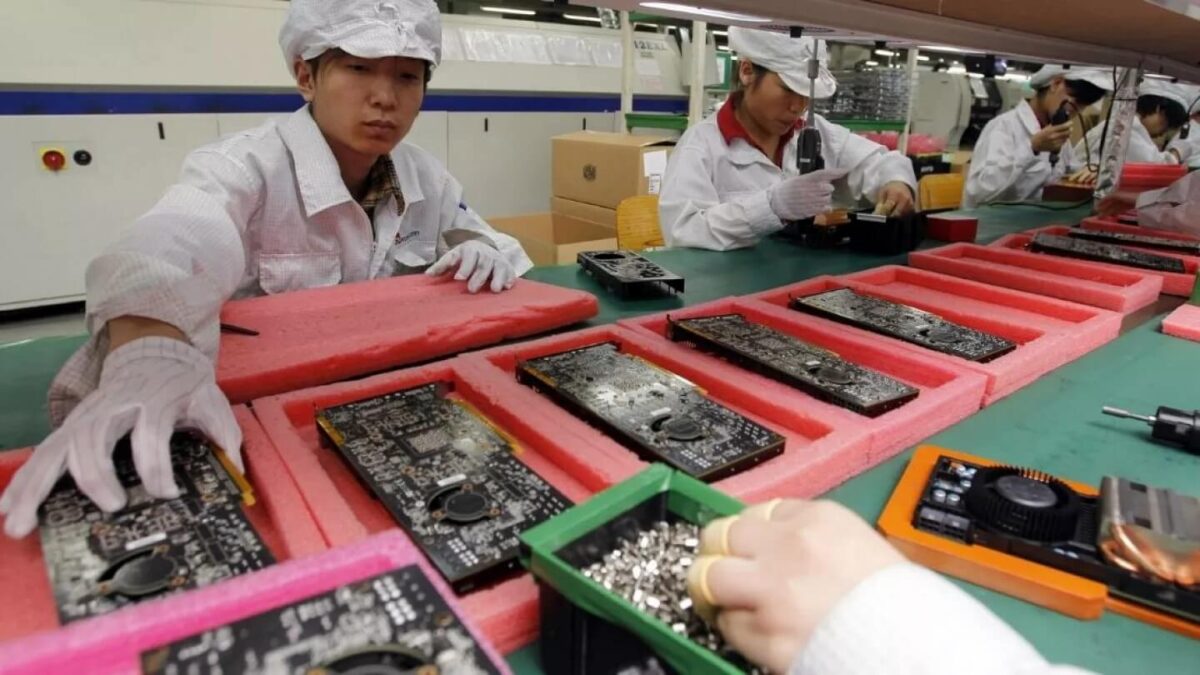
2. Why does Apple produce products in China?
Apple chooses to manufacture its products in China mainly because of cost-effectiveness and skilled labor. Apple can maintain competitive prices by manufacturing in China since labor and production costs are lower. Additionally, China has a large skilled workforce with expertise in electronics manufacturing, ensuring high-quality production.
It is easy for Apple to source components and materials in the country due to its well-established infrastructure and supply chain network. In addition, manufacturing in China brings Apple closer to one of the world’s largest consumer electronics markets, allowing it to quickly respond to market needs and customize for Chinese consumers. Through long-term cooperation with Chinese manufacturers, Apple can guarantee efficient production,
1) Manufacturing in China is cost-effective
Apple decided to produce products in China because of one important factor: cost advantage. Compared with labor costs in the US or Europe, labor costs in China are much lower. So this fact shows that China is an attractive location for manufacturing. In addition, China has an abundance of skilled workers who are willing to work longer hours for meager wages. This situation favors Apple’s ability to produce superior quality products at lower costs, which ultimately leads to higher profit margins.
2) China provides a large number of skilled labor
China has a large number of skilled workers and is good at producing high-quality products on a large scale. Chinese workers are known for their ability to work quickly and efficiently, which is crucial for producing large quantities of products in a short period of time. A strong ecosystem of suppliers and subcontractors in China also enables Apple to source components quickly and efficiently.
Furthermore, Chinese workers have skills that go beyond production. China also has a growing number of engineers and researchers working on cutting-edge technologies. This makes China an attractive location for R&D, and Apple has several R&D centers in the country.
3) Enter the huge consumer market
China is the largest consumer market in the world, with a population of over 1.4 billion. By manufacturing products in China, Apple can sell its products directly to Chinese consumers without incurring high import duties. Additionally, China’s growing middle class with increasing purchasing power makes it an attractive market for Apple products.
However, entering the Chinese market comes with its own set of challenges. China has a unique business environment that can be difficult for foreign companies to navigate. In addition, competition from local Chinese brands is fierce, offering products at lower prices.
4) A favorable regulatory environment for foreign companies
The regulatory environment in China is relatively favorable to foreign companies, and the Chinese government offers various incentives and tax breaks to attract foreign investment. Additionally, the Chinese government has invested heavily in infrastructure and technology, which helps create a favorable environment for manufacturing.
However, China’s regulatory environment also presents risks. Governments wield significant influence over business, and foreign companies must navigate a complex web of regulations and bureaucracies. Foreign companies operating in China are also at risk of intellectual property theft.
5) Favorable political and social factors
Lastly, Apple’s decision to manufacture products in China was influenced by political and social factors. For example, the Chinese government has invested heavily in education and infrastructure, which has helped create a skilled workforce and an environment conducive to manufacturing. In addition, China’s long-term economic growth prospects make it an attractive place for foreign investment.
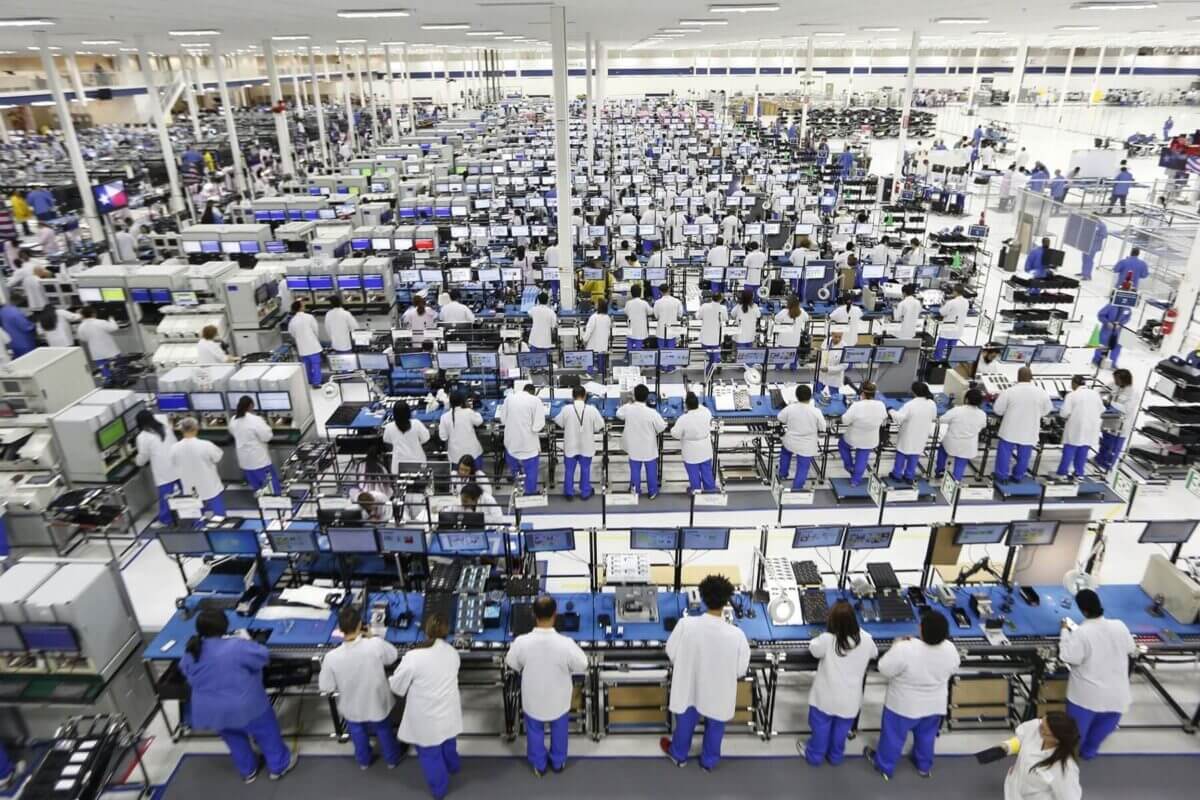
3. Types of Apple products made in China
Below are the major Apple products manufactured in China.
1) iPhone
A large part of Apple’s iPhone manufacturing is done in China, making it one of the company’s most popular products. The country is home to some of the largest smartphone manufacturing plants in the world, making it an attractive location for Apple. The iPhone’s manufacturing process involves screens, batteries, processors, cameras, and other components, all of which are made in China. Assembly of the iPhone is done at a factory owned by Foxconn, one of Apple’s main suppliers.
2) iPad
Apple’s iPad is another popular product made in China. iPads are manufactured similarly to iPhones. Components for the device come from various suppliers in China, and assembly is done at Foxconn-owned factories. Apple has been producing iPads in China since it launched in 2010.
3) MacBook
Apple’s MacBook is a high-end laptop made in China. Various components are sourced from China and assembled at Foxconn-owned factories in the MacBook manufacturing process. Manufacturing MacBooks in this country is attractive because of its skilled workforce and availability of quality components. Apple has been producing MacBooks in China since 2001.
4) AirPods
Apple’s AirPods, a popular line of wireless headphones, are also made in China. The parts for the product come from Chinese suppliers and are assembled at Foxconn-owned factories. AirPods have been on the rise in popularity since their launch in 2016, and Apple has increased production capacity in China to meet growing demand.
5) Apple Watch
The Apple Watch is another popular product made in China. A factory owned by Quanta Computer, one of Apple’s main suppliers, assembles the components sourced from various Chinese suppliers. The popularity of the watch has been on the rise since its launch in 2015, and Apple has been ramping up its production capacity in China to meet growing demand.
6)HomePod
Apple’s HomePod is a smart speaker made in China. The parts for the product come from Chinese suppliers and are assembled at Foxconn-owned factories. As part of the HomePod manufacturing process, high-quality audio components are sourced and assembled in a way that maximizes sound quality. Apple has been producing the HomePod in China since 2018.
7) iPod
The iPod is a portable music player that has been a hit with Apple since its introduction in 2001. Manufacturing of the iPod is largely done in China, with assembly by Foxconn. In 2018, Apple produced about 14 million iPods in China, according to the Financial Times. However, the iPod’s popularity has waned in recent years, and the company discontinued the product in 2017.
8) Apple Pencil
Apple Pencil is a stylus designed for use with iPad and iPad Pro. The product is manufactured in China and assembled by Foxconn. Apple Pencil has been popular with artists, designers, and note-takers since its launch in 2015. According to a Statista report, Apple sold about 10.6 million Apple Pencils in 2020.
9) Apple TV
Streaming video content to television is possible with Apple TV. The product is manufactured in China and assembled by Foxconn. According to TechCrunch, Apple sold about 14 million Apple TVs in 2020. The company has been expanding its content offerings on the platform and has launched a new Apple TV 4K model.
10) AirTag
AirTags are small tracking devices designed to help users locate lost items such as keys, backpacks, or luggage. Luxshare Precision, one of Apple’s main suppliers, manufactures and assembles the product in China. After the product was launched in April, Apple sold about 1.4 million AirTags in the second quarter of 2021, according to Statista. AirTags have been praised for their ease of use and accuracy in locating lost items.
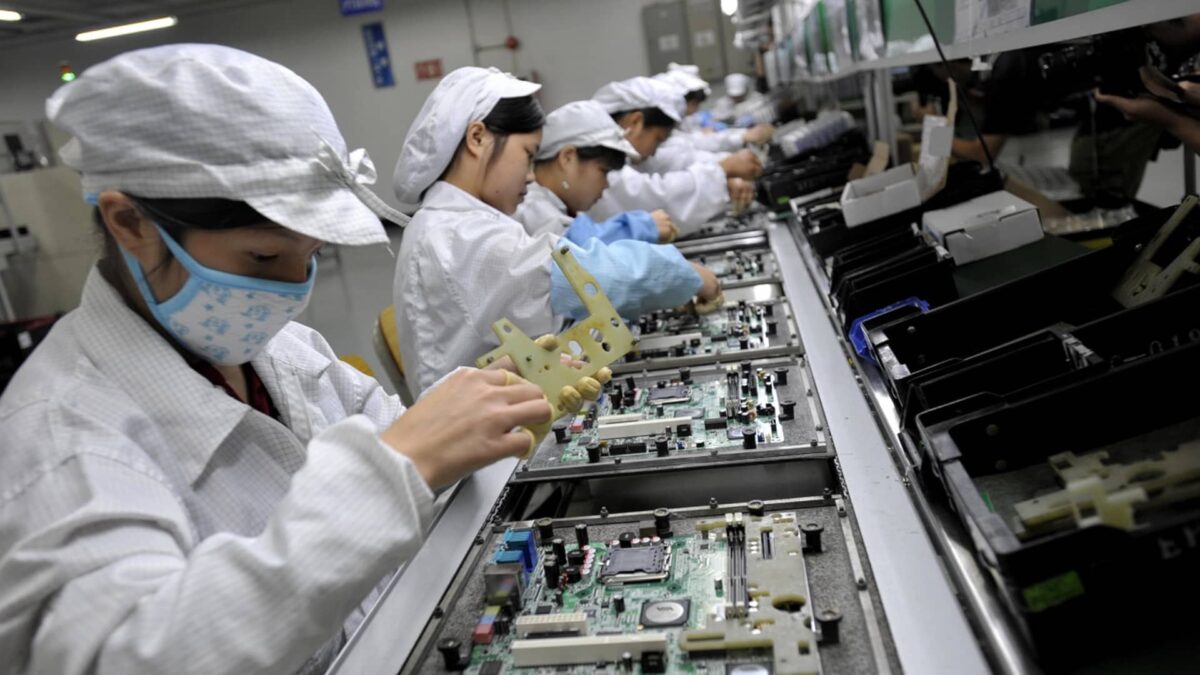
4. The impact of Chinese apple manufacturers on the Chinese wholesale market
Apple began producing products in China in 2001. China is the world’s largest iPhone producer, with about 90 percent of iPhones produced there. In addition to iPhones, China also produces other Apple products such as iPads, iPods, and MacBooks. The main reason for Apple’s decision to manufacture in China is its low labor costs, skilled labor, and large-scale manufacturing capabilities.
Apple has also invested heavily in its manufacturing operations in China. In 2021, the company announced plans to invest $430 million in a new R&D center in Shenzhen, China. The center will focus on the development of new technologies and will employ more than 1,000 engineers.
The Chinese economy has also benefited from Apple’s manufacturing operations in China. In 2020, Apple’s business in China contributed more than US$102 billion to the Chinese economy, according to a report by the China Academy of Information and Communications Technology. The report also found that Apple’s business in China has created more than 4.8 million jobs in China.
Here’s how the wholesale market has evolved due to the development of Chinese apple makers.
1) Improve manufacturing quality standards
The entry of Apple manufacturers into China has raised quality standards in the wholesale market. Apple is known for its stringent quality control procedures, which had a knock-on effect on other manufacturers in the region, resulting in an overall improvement in the quality of goods produced,
The demand for Apple products drives the need for increased manufacturing efficiency. This led to the development of new technologies and processes that increased the efficiency of Chinese manufacturing.
2) Lower overall manufacturing cost due to increased competition
Competition for Apple’s business has driven down manufacturing costs in China. This makes it cheaper for other manufacturers to produce goods, thus providing a greater variety of products to foreign buyers in China’s wholesale market.
3) Manufacturing has easier access to technology
Apple’s presence in China has made it easier to access technology and resources that were previously unavailable. This has led to an overall increase in technological capabilities in the region, thereby making it more competitive globally.
4) Increase trade opportunities for foreign buyers
The presence of Apple manufacturers in China has attracted foreign buyers, which has led to more trade opportunities for local manufacturers. This helps boost the local economy and creates jobs in the area.
5) Strengthen local manufacturing innovation
Apple is known for its innovation and product development, and its presence in China spurs innovation from local manufacturers. According to the World Intellectual Property Organization (WIPO) report, China is the country with the most patent applications in 2020, with more than 1.4 million applications. This reflects growing innovation and technological development in the region, fueled in part by the presence of Apple Inc.
6) Improve labor conditions with strict quality standards
Apple is known to have strict standards for working conditions in its manufacturing plants, which has had a positive impact on working conditions at other manufacturers in the region. According to a report by the Fair Labor Institute, 94 percent of Apple’s supplier facilities in China comply with the company’s code of conduct, which includes working hours, wages, and health and safety standards.
7) Improve the overall supply chain process
Apple’s supply chain is known for its efficiency and reliability, and its presence in China helps strengthen supply chain capabilities in the region. This results in faster turnaround times and more reliable delivery of goods for foreign buyers in the Chinese wholesale market.
Overall, the impact of Chinese apple manufacturers on the Chinese wholesale market for foreign buyers is largely positive. It improves quality, efficiency, and technology, and increases trade opportunities, and reduces costs.
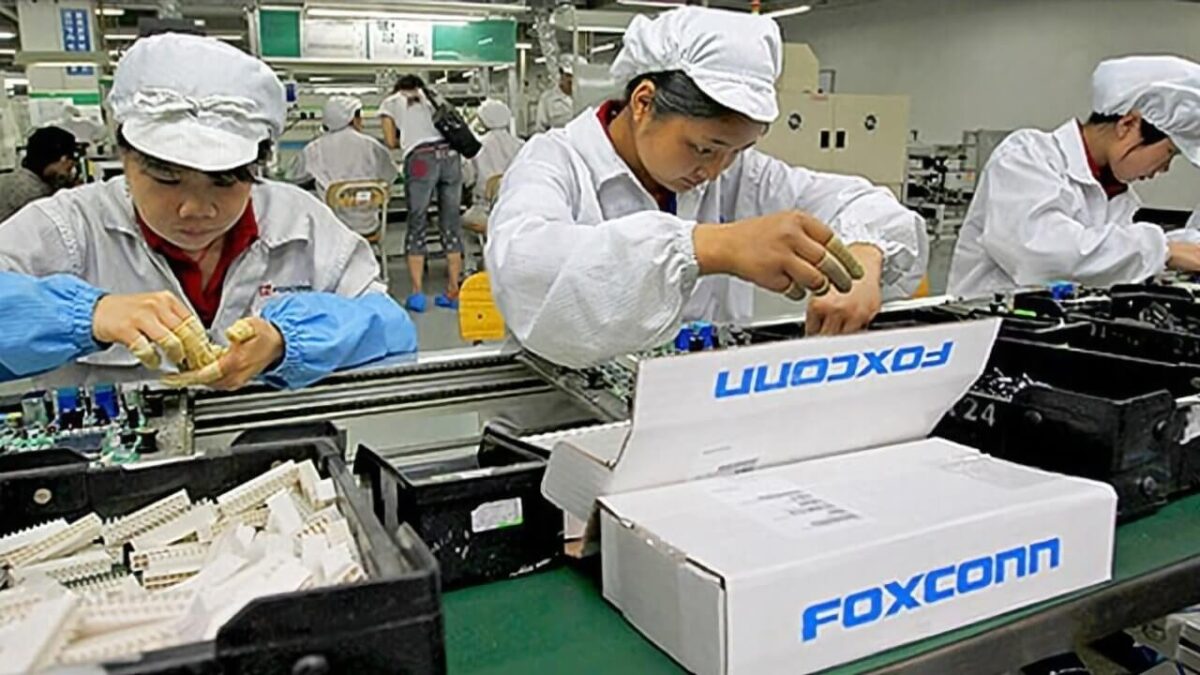
5. List of Apple manufacturers in China
Now, let’s turn to the section that includes some of Apple’s key suppliers that provide the components needed to make Apple products like the iPhone and iPad. This information is provided solely for your understanding of how Apple operates in China.
Here are some manufacturers and their addresses:
- Foxconn: No. 2, Donghuan 2nd Road, Longhua District, Shenzhen, China 518109
- Bosch Sensor Technology: Green 18, Phase 2, Hong Kong Science Park, Pak Shek Kok, New Territories, Hong Kong, 2/F & 3/F
- Cirrus Logic: Shenzhen, No. 2 Yihe Road, Shilong Community, Shiyan Street, Baoan District
- Qualcomm China: Floors 1, 2, and 4, Unit 9, No. 690, Bibo Road, Zhangjiang Hi-Tech Park, Shanghai, Republic of China Zip code: 201203
- AKM Semiconductor: 24th Floor, Phase II, Weilun Center, 200 Dalian Pai Road, Kwai Chung, New Territories, Hong Kong
- TSMC China: No. 4000 Wenxiang Road, Songjiang, Shanghai, China
1) The largest contract manufacturer and assembler for Apple is Foxconn
This is an Apple contract manufacturer based in Taiwan. The company is best known for making the iPhone, the US tech giant Apple. Taipei, Taiwan, is the company’s headquarters.
They have a giant factory in Shenzhen, China. Foxconn’s revenue in 2018 was approximately US$175 billion, ranking 24th among Fortune 500 companies.
It produces about 60-70% of the iPhones sold each year, and Apple is by far the company’s largest customer. The company has also developed some devices for the Iphone to increase profit margins.
For example, they developed their own chemicals to polish iPhone screens instead of relying on chemicals from Japanese companies.
2) Bosch Sensortec, China is producing accelerometer sensors for the iPhone
The first official supplier to work for Apple was Bosch Sensortec. In addition to barometers, pressure sensors, and humidity sensors, Bosch operates globally.
The company’s Chinese unit, which is linked to Apple, makes accelerometer sensors for Apple’s iPhones. Likewise, it produces accelerometer modules for Apple’s iPad devices.
3) Cirrus Logic is making audio chips for Apple
If you’ve ever wondered where Apple gets its audio chips for the iPhone and iPad, Cirrus Logic is your answer.
Cirrus Logic is a US-based technology company that manufactures audio components for various companies. They have factories in China that make audio chips for Apple.
In addition to audio chips, Cirrus Logic also produces haptic feedback sensors for the iPhone lineup.
4) Sunwoda Electronics produces batteries for Apple
The iPhone battery can get good battery timings because the battery is manufactured by Sunwoda Electronics. Sunwoda is a lithium-ion battery maker that produces batteries for cars and mobile phones.
The Shenzhen-based company is a major iPhone supplier and has worked with Apple for many years.
5) Qualcomm makes camera sensors for iPhones and iPad
We all know what Qualcomm is and how it changed the world of electronics. Qualcomm is a supplier of processors for mobile phones and laptops.
Qualcomm China uses its resources to produce camera modules for the iPhone. These modules include the iPhone’s camera algorithms, chassis, lenses, and focus sensors.
6) AKM Semiconductor makes compasses for Apple products
Asahi Kasei Microdevices (AKM) is a Japanese company that manufactures various devices for various companies.
These devices include communication ICs, audio chips, current sensors, and compass modules. As of the launch of the iPhone 6, AKM, China manufactures the compass sensor for all iPhones.
7) TSMC China produces LCD screens and glass screens for Apple
Like Qualcomm, TSMC is another important partner of Apple in China. TSMC is a Taiwanese company that makes LCD/AMOLED screens for Apple and Samsung.
The company’s Chinese branch supplies screens for Apple’s iPhone and iPad. In addition, the company makes the glass needed for Apple’s screens.
8) Other companies working for Apple in China
Some of Apple’s key suppliers for iPhones and other products are the aforementioned companies.
However, there are a number of other companies that also play an important role in Apple’s China business. For example
- Corning makes glass protection system for Apple
- STMicroelectronics makes gyroscope sensors in China
- Broadcom makes touchscreen controllers for Apple
- Murata China produces Wi-Fi chips for iPhone/iPad
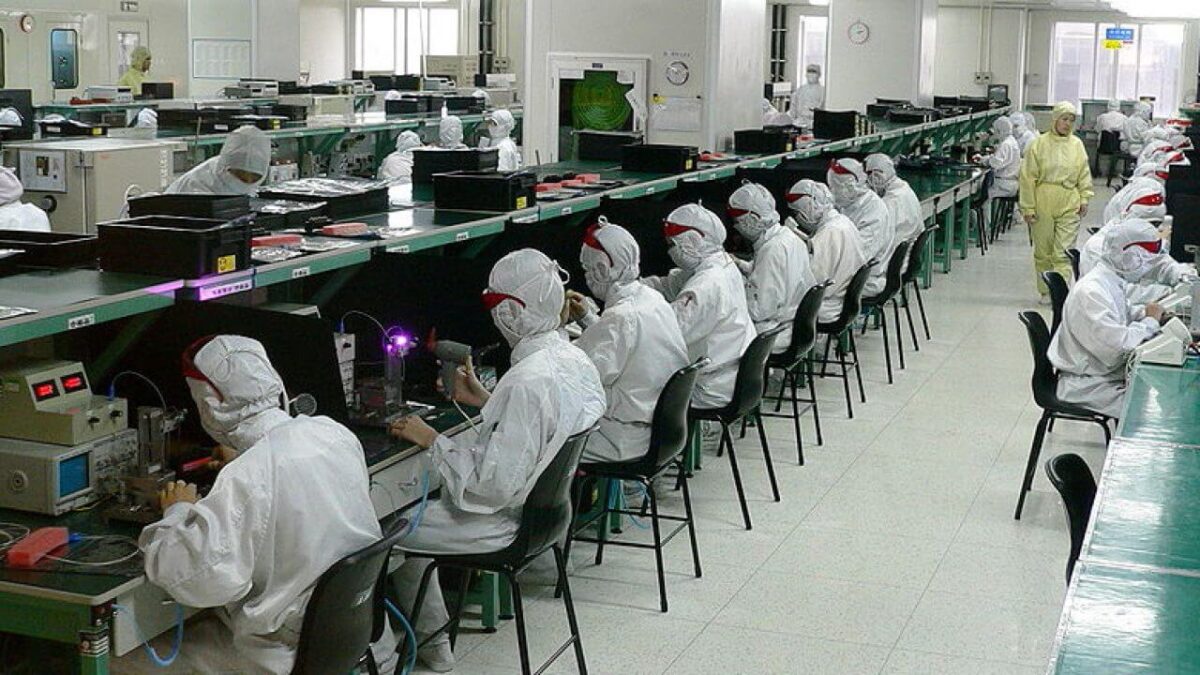
6. Does China manufacture or assemble Apple products?
There are two terms to understand – assembly and fabrication. In this chapter, we discuss whether China is a manufacturer or an assembler of Apple products. Let’s move on.
1) Assembly vs Manufacturing: What’s the Difference
Before we talk about assembly, let’s talk about manufacturing terminology. Manufacturing means that a company uses raw materials to create a product from scratch.
In this process, the company designs the product, collects raw materials, and then manufactures the product. Manufacturing is an expensive process compared to assembly. And it takes a lot of time in the manufacturing process.
Speaking of assembly, let’s take an example. Suppose you are an assembler for a shoe company. You take the laces from another company, you take the sole from another company; hire a company that does the logo and design of the shoe.
Then you connect all these parts together. Assembly is an inexpensive process compared to manufacturing because there is no need to buy machines and spend money designing the product.
This is the key difference between fabrication and assembly. Let’s talk about what role China plays here for Apple.
2) Does China manufacture products for Apple or just assemble them?
This topic can be viewed in two ways. For starters, many of Apple’s components are made by Chinese companies. We have mentioned this above.
Yes, these Chinese companies are manufacturers of Apple products, and some of them are assemblers of Apple products.
For the assembly part, there are a few companies that specialize in this work, surprisingly they are also Chinese companies.
Simply put, China is the manufacturer and assembler of Apple. Some companies are just manufacturers and some are just assemblers. Some might even be both, like Foxconn.
3) Foxconn – Apple’s first assembly plant in China
Foxconn (also known as Hon Hai Precision Industry Co Ltd) is Apple’s longest-running partner, providing assembly and production services for Apple devices.
Foxconn is a Taiwanese company that designs and manufactures electronic components such as printed circuit boards and computer chips. Its headquarters is located in New Taipei City, Taiwan, China. Foxconn also has an assembly plant in China.
Apple has ties to Foxconn China and Apple, and Foxconn is assembling Apple products. Foxconn is responsible for the assembly of most of Apple’s products, as it is Apple’s first partner in China.
4) Pegatron – Apple’s second-generation assembler
Pegatron is another Taiwanese (Chinese) company that manufactures computing and consumer electronics for suppliers. It also designs and manufactures computer peripheral equipment.
Pegatron’s mainland China factory uses its resources to produce Apple products. The company has a new connection with Apple. In spite of this, it plays a vital role in the assembly of Apple products.
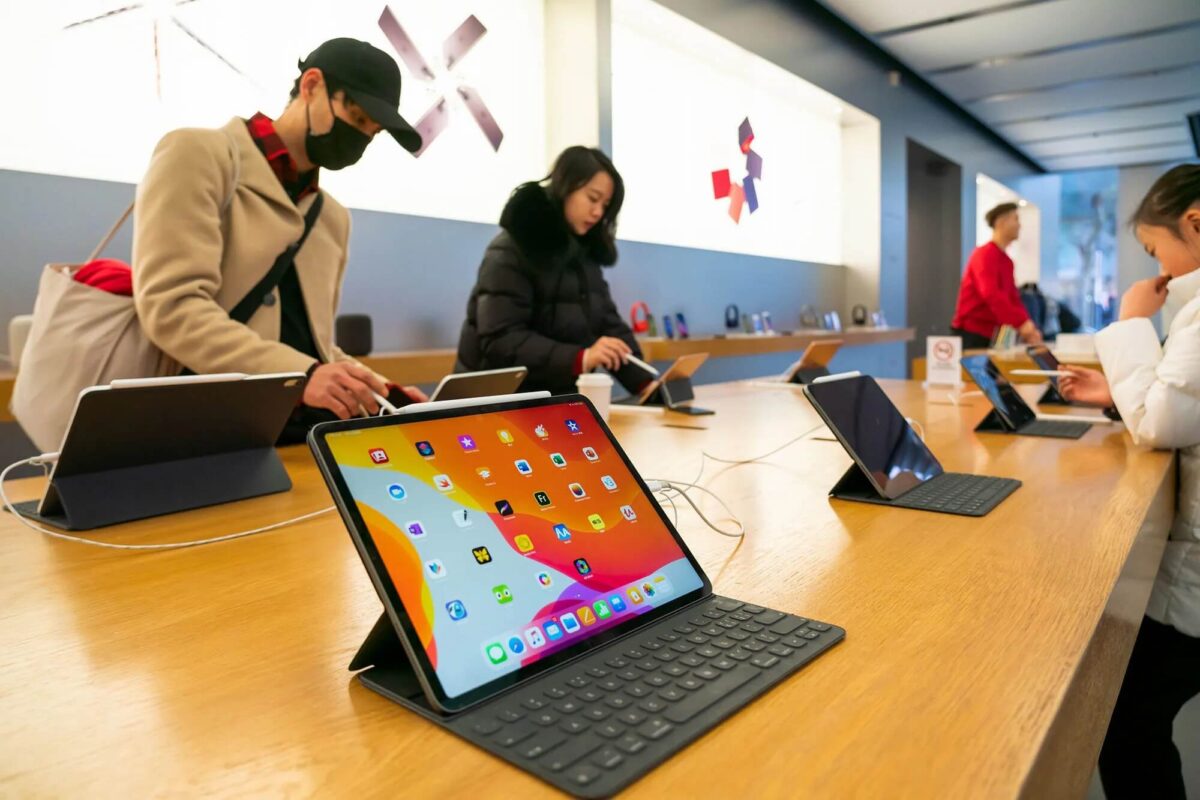
7. What products do Chinese companies assemble for Apple?
There are currently four Taiwanese (Chinese) companies assembling products for Apple. All of these companies have assembly plants in China and use that to minimize assembly costs and delays.
1) Products that Foxconn Assembles
The company currently assembles most iPhones, iPads, and MacBooks at its Shenzhen assembly plant. Foxconn also operates in countries including Thailand, South Korea, and the Czech Republic.
However, it uses Chinese factories because it can easily source iPhone components from other Chinese Apple suppliers.
Likewise, Foxconn assembles iPads for Apple. He has worked on the 3rd, 4th, 5th, and 6th generation iPad series, and is currently assembling the latest iPad.
2) Pegatron
This is the second assembler that Apple has used its resources to assemble iPhones. The company has a new partnership with Apple. When the iPhone 6 was released, Pegatron assembled nearly 30 percent of its phones to meet demand.
3) Goertek
This is a Chinese audio equipment company that produces drivers, audio microphones, speakers, and sound algorithms for various companies.
The company uses its headquarters factory to assemble Apple Air pods. The latest Apple earphones (Air Pods Max) are assembled using Goertek’s resources and knowledge.
4) Luxshare
Another Chinese company that assembles consumer electronics, telecommunications equipment, and car audio components is Goertek. Luxshare is the main assembler of Apple AirPods and has assembled AirPods 1 and 2 for Apple.
8. Frequently asked questions about Apple products made in China
Here are answers to frequently asked questions about Apple’s manufacturing of products in China.
1) Does Apple manufacture products in China?
Apple does not have its own factories and manufactures its products in China. It has signed contracts with various Chinese companies that manufacture and produce Apple products.
Suppliers in China manufacture parts for Apple, and some companies assemble those parts into iPhones and iPads.
2) When did Apple start to be produced in China?
Due to high demand, Apple partnered with Foxconn in Zhengzhou to assemble iPhones and iPads at Foxconn’s production plant. Production and assembly were later transferred to Foxconn’s Shenzhen factory.
3) Are Apple products cheaper in China than in the US?
People have a misconception that China is the center of Apple, so products here are cheaper than the rest of the world. Well, that’s not the case. In fact, Apple products are a bit expensive in China compared to the rest of the world.
4) How many factories does Apple have in China?
Apple does not have its own factories in China. However, we can say that companies such as Foxconn and Pegatron also produce and assemble this product in China. Additionally, Apple is using the help of several Chinese companies to manufacture its components.
5) Has Apple stopped producing in China?
So far, Apple has not stopped producing products in China. However, the company is planning to relocate assembly plants to India and Vietnam due to lower assembly costs. This is also due to the trade war between the U.S. and China during Donald Trump’s presidency.
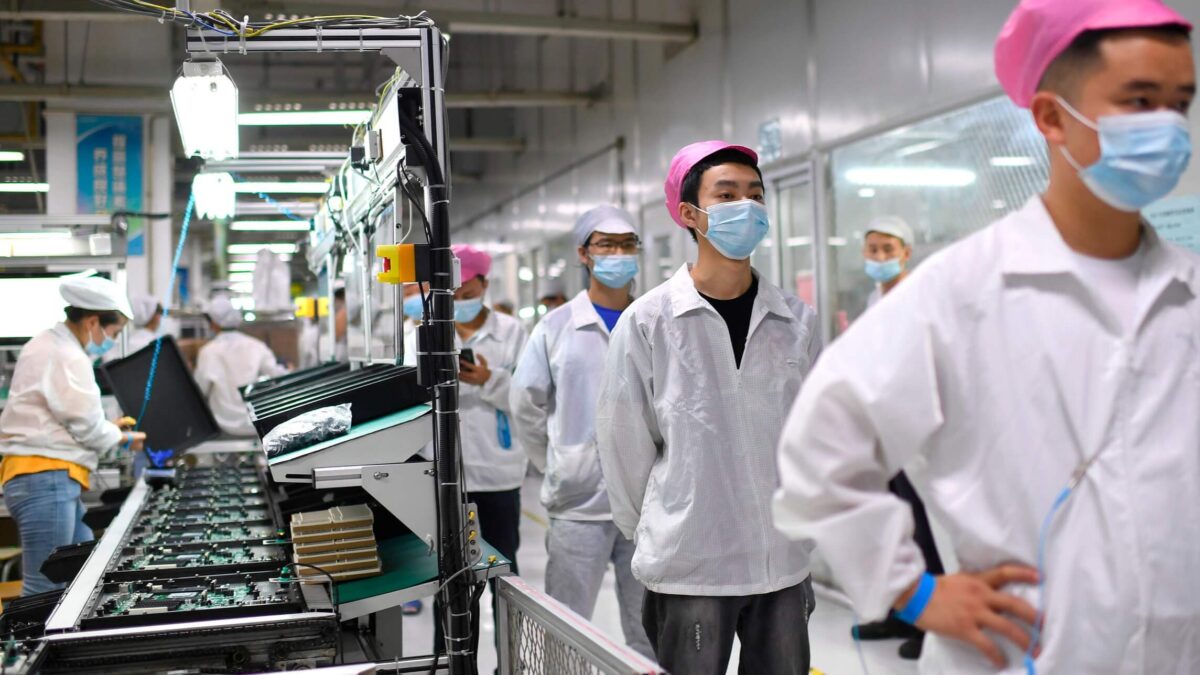
9. Conclusion
Apple has gained a lot of attention for being an icon of luxury around the world. There is a huge demand for the company’s products, and unless Apple has a large workforce, there’s no way to meet that demand. This is where China comes into play.
As part of Apple’s business strategy, the company has manufacturing operations in China. The company’s strong relationship with Chinese manufacturing partners makes it easy to produce high-quality products at a lower cost.
China’s skilled workforce, low labor costs, and access to raw materials make it an attractive location for Apple’s manufacturing operations. The company’s investment in manufacturing operations in China has also had a positive impact on the country’s economy as well as foreign imports.





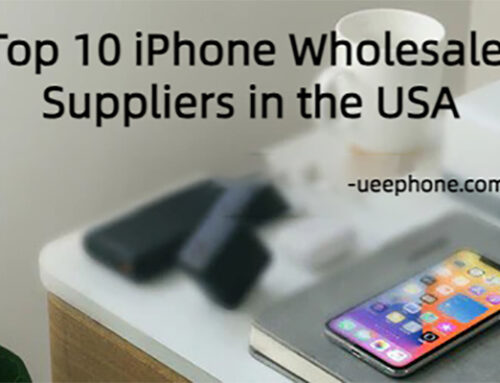
Leave A Comment